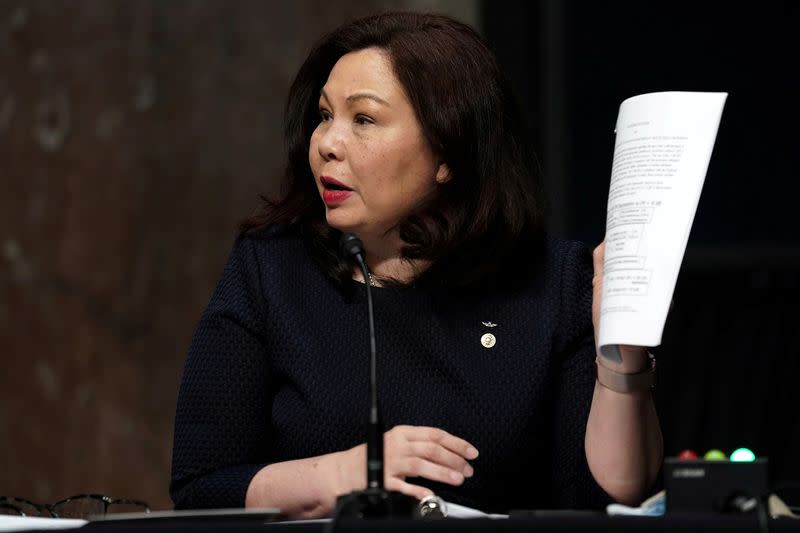S.Korea's IP laws key to expanding coronavirus vaccine partnership - U.S. senators
By Josh Smith
SEOUL (Reuters) - South Korea's respect for intellectual property rights makes it an ideal partner for the United States as it seeks to decouple its supply chains from China and forge partnerships to manufacture coronavirus vaccines, a trio of U.S. senators said on Saturday during a visit to Seoul.
Democrats Tammy Duckworth and Chris Coons, and Republican Dan Sullivan, were in South Korea as part of their first official overseas trip since the pandemic began.
After last month's summit in Washington between U.S. President Joe Biden and South Korean President Moon Jae-in - who was only the second international leader to be welcomed by Biden - the senators said their visit was sign of the importance Washington places on South Korea's role in countering China and shoring up global supply chains amid the pandemic.
"We can trust in the legal system here, and we can trust that our intellectual property rights will be protected," Duckworth told a group of reporters. "South Korea is a logical partner. This is critical whether it is manufacturing (computer) chips or pharmaceuticals."
A day after Biden and Moon met, U.S. drugmakers Moderna Inc and Novavax Inc entered into a deal with South Korea for their COVID-19 vaccines to be manufactured in the country, which has been seeking to secure more and faster deliveries of U.S.-made vaccines.
When asked about criticism that Moderna's vaccine would not be fully manufactured in South Korea, Duckworth said the arrangement was the first of its kind for the United States.
"Remember we're not doing this anywhere else in the world," she said. "Let's make that clear."
Coons said the deals did not appear to be small or temporary, and were just the beginning.
The U.S. government's recently created International Development Finance Corporation may be involved in funding the partnerships, alongside South Korean sources, he said.
"They are going to be ... ramping up production, not just for South Korea, but for the entire region," he said.
(Reporting by Josh Smith; Editing by Mark Potter)

 Yahoo News
Yahoo News 

